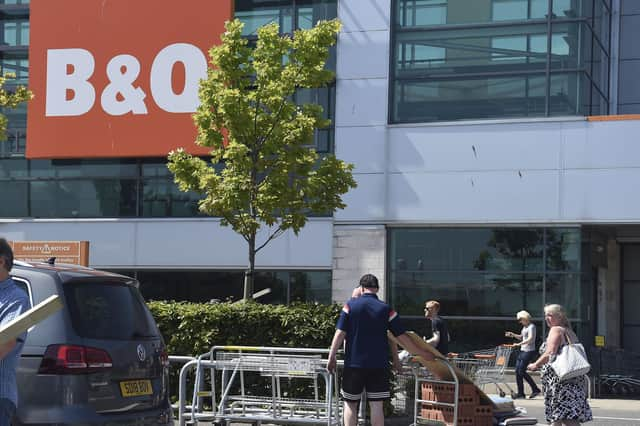Government boost as B&Q becomes latest big high street name to hand back millions


The group said it was eligible for business rates relief of up to £130 million in the UK and Ireland because of decisions taken to help out firms during the pandemic.
But, unlike many retailers, DIY companies have fared well during the lockdown, as people stuck indoors have started sprucing up their homes.
Advertisement
Hide AdAdvertisement
Hide AdKingfisher said some £110m of the rates relief it was eligible for falls this financial year, with the rest coming next year.
Chief executive Thierry Garnier said government support for the group and other retailers had been “invaluable” during the Covid crisis.
He added that the business had taken steps to ensure its online and in-store operations were ready to meet the needs of customers.
“We made significant investments to ensure the safety of our customers and teams, taking important steps to strengthen our balance sheet and limit the financial impact of Covid-19,” he said.
“These actions, combined with the rollout of our new strategy and the hard work of our colleagues and teams, have delivered growth throughout the group and led to the hiring of 3,500 additional colleagues.
“Given this resilience, and our commitment to support our communities, we believe that returning the UK and Irish business rates relief in full is the right thing to do.”
The group now predicts its adjusted pre-tax profit will include non-recurring cost savings of around £85m, down from previous guidance of approximately £175m, net of any one-off Covid-19 costs.
On Wednesday last week, supermarket giant Tesco set off a cascade of companies returning their rates relief by announcing it would pay back £585m to the government.
Advertisement
Hide AdAdvertisement
Hide AdLater the same day, Morrisons said it would pay its £274m bill in full. Asda, Whole Foods, Pets At Home, B&M, Aldi, Lidl and Sainsbury’s have all followed in their wake.
Business rates are devolved in Scotland so there will be consequentials as a result of the Barnett formula.
Early in the pandemic crisis, Tesco faced criticism for taking the rates relief at the same time as handing out large dividend payments to shareholders. However, it did not tap into the government’s furlough scheme.
A message from the Editor:
Thank you for reading this article. We’re more reliant on your support than ever as the shift in consumer habits brought about by coronavirus impacts our advertisers. If you haven’t already, please consider supporting our trusted, fact-checked journalism by taking out a digital subscription: www.scotsman.com/subscriptions
Comments
Want to join the conversation? Please or to comment on this article.